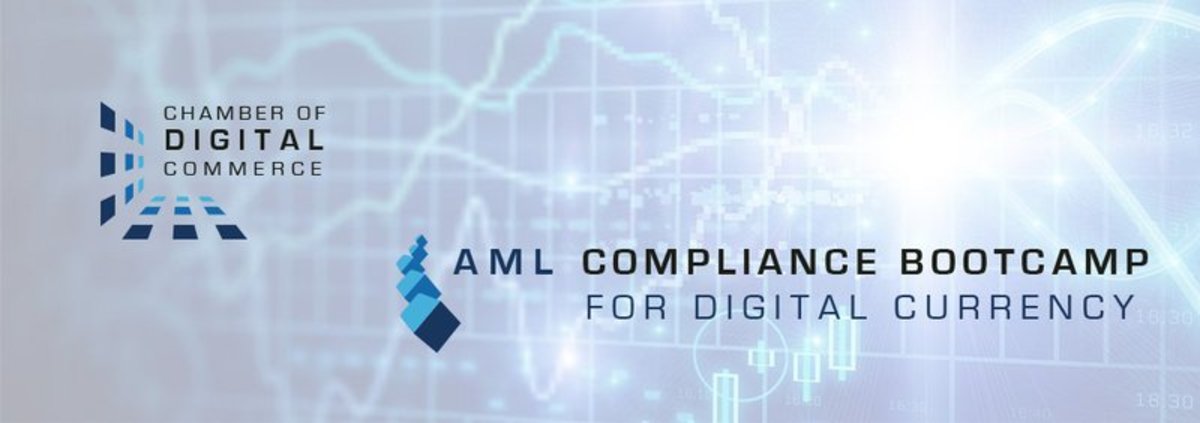
The Chamber of Digital Commerce will hold a two-day anti-money laundering (AML) compliance boot camp for bankers, regulators and digital currency companies. The event will be in New York City from April 30 to May 1, with an optional workshop on May 2.
The topic of compliance and regulations is a tough one for Bitcoin companies. AML Know-Your-Customer and OFAC regulations are difficult for large and established companies, as seen recently when PayPal was fined $7 million by the U.S. Treasury Department for processing illegal transactions from blacklisted persons.
According to the president of the Chamber of Digital Commerce, Perianne Boring, AML can be one of the most complex and difficult laws to be compliant with. And for a startup with little capital, a small staff, and little knowledge of the regulations it can be extremely difficult. When you add the nascent state of digital currency regulations on top of that, it can seem overwhelming.
The United States has been particularly difficult when it comes to regulations. The infamous New York BitLicense proposal, which is a proposed special license for digital currency companies in New York State, is set to be finalized “soon,” but an exact date has not been given. Analysts anticipate that the regulation could set a standard for Bitcoin regulations across the United States and possibly in other countries.
Connecting Digital Currency Companies, Bankers and Regulators
The boot camp is one of the few opportunities to learn about proper AML compliance for Bitcoin companies. It also is an opportunity for Bitcoin companies to meet with bankers and regulators, groups usually outside of the networks of most most companies in the Bitcoin community.
According to Carol Van Cleef, a partner at Manatt, Phelps & Phillips and the creator of the boot camp, the event is designed to bring together the various groups.
“A truly effective AML program cannot be developed in a bubble,” Van Cleef said. “And we know that one the biggest benefit for companies attending these programs is meeting the regulators, bankers and law enforcement also attending.”
“There aren’t many opportunities for these parties to get together and meet each other in a collaborative environment. Connecting in small working groups at boot camp helps both sides gain a better understanding of what the other has on their plate.”
Van Cleef knows what she is talking about when it comes to regulatory boot camps. She started the first AML compliance boot camp in 2005 to help the traditional banking industry comply with the Bank Secrecy Act and additional regulatory requirements emerging from the USA Patriot Act passed after 9/11.
According to Van Cleef, many banks and financial institutions were struggling at the time to understand what these laws and regulations required them to do. Banks were increasingly concerned as they watched more and more enforcement actions and civil money penalties being imposed for lax compliance. Van Cleef sees a very similar phenomenon happening within the digital currency industry which is why she thinks this boot camp is critically important for the young industry.
“New regulatory requirements can seem overwhelming and even somewhat distant, leaving many companies in the affected industries not interested in compliance. The bootcamp is not just a way to learn how to be compliant but also meet the people who work with the regulations every day.”
Regulatory Crash Course
The event is ideal not only for bitcoin startups just starting to build their AML programs but also for companies with established programs to both benchmark their efforts against others and fine tune their process. During the two day course, Van Cleef and the other course instructor, Maureen Sanders Piccillo, who is a former US Internal Revenue Service’s National AML Program Manager (the unit that examines digital currency companies for compliance with the BSA), will work with exercises that teach participants the necessities of an AML program.
There will also be an optional third day, which will be an AML program drafting workshop. According to Van Cleef, participants learn so much in the first days that they are unsure where to start, but the workshop gives attendees a clear game plan to follow.
Participants in the class will also be able to receive educational credits for attending. The credits will be issued by the Digital Currency Council and Association of Certified Anti-Money Laundering Specialists.
Other sponsors of the event include Manatt, Phelps & Phillips, Tally Capital, MelonDrexel, compliance solution provider IdentityMind Global, the Anti-money Laundering Training Institute and Comptegrity.
The New York Cityboot camp is just one of the several educational initiatives the Chamber of Digital Commerce produces. Most recently, the organization sponsored the boot camp at the North American Bitcoin Conference, a large annual event for bitcoin enthusiasts and professionals. The boot camps are part of the industry group’s larger goal to educate government officials, financial professionals and bitcoin startups alike.
This article was updated to reflect that the Digital Currency Council and Association of Certified Anti-Money Laundering Specialists are offering continuing education credits only.










